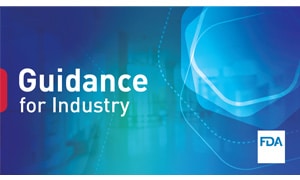The FDA recently issued draft guidance titled “FDA Guidance on Protocol Deviations,” which provides critical insights into managing protocol deviations during clinical trials. The document outlines the responsibilities of sponsors, clinical investigators, and Institutional Review Boards (IRBs) to ensure compliance with Good Clinical Practice (GCP) standards, uphold participant safety, and maintain data integrity. Below are the key highlights and implications of the guidance for clinical trial stakeholders.
Understanding Protocol Deviations
Protocol deviations are changes or departures from the study protocol that can occur during clinical trials. These deviations can be classified as one of the following:
- Important protocol deviations: Those that impact the safety, rights, or welfare of participants or compromise the reliability of trial results.
- Non-important protocol deviations: Minor issues that do not affect participant safety or study outcomes.
The guidance emphasizes the need for careful documentation, evaluation, and classification of these deviations to ensure consistent trial conduct.
Highlights for Sponsors
Preventative Measures
The guidance advises sponsors to adopt quality-by-design principles to minimize protocol deviations. Key strategies include:
- Streamlined Study Design: Simplify trial protocols to reduce complexity.
- Flexible Protocol Elements: Incorporate flexibility in enrollment criteria, data collection timeframes, and non-essential procedures.
- Remote Assessments: Allow for specific assessments to be conducted remotely where feasible.
Stakeholder Engagement
During the protocol development phase, the sponsor should involve clinical investigators, site staff, and potential trial participants. This collaboration helps ensure that trial procedures are feasible and not unnecessarily burdensome.
Root Cause Analysis
For recurrent protocol deviations, sponsors should conduct a root cause analysis to:
- Identify the underlying causes.
- Develop corrective and preventive action plans.
- Update risk mitigation strategies and study plans.
If deviations persist at a specific site despite remediation, the draft guidance advises sponsors to consider closing the trial site.
Role of Investigators
Clinical investigators play a central role in identifying and managing protocol deviations. The guidance underscores the following:
- Pre-approval Requirements: Investigators must seek prior IRB approval for intentional protocol deviations unless immediate action is required to eliminate hazards to participants.
- IRB Notification: Investigators should promptly report significant protocol deviations to the IRB for review.
- Site-level Training: Ensure all site staff are trained to implement critical protocol elements accurately and avoid deviations.
Responsibilities of IRBs
IRBs are responsible for safeguarding the rights and welfare of clinical trial participants. The guidance highlights:
- Review of Important Deviations: IRBs should review and assess significant protocol deviations submitted by investigators to evaluate their impact on participant safety or trial conduct.
- Approval of Protocol Changes: Protocol modifications must generally receive IRB approval before implementation, except in urgent cases, to eliminate immediate hazards.
Implications for Clinical Trials
Data Integrity and Participant Safety
The guidance’s emphasis on classifying and addressing protocol deviations ensures that:
- Participant safety is not compromised.
- Trial data remains reliable and valid for regulatory review.
Improved Protocol Design
Adopting flexibility in protocol design can enhance adherence, minimize deviations, and reduce the administrative burden on investigators and site staff.
Enhanced Collaboration
Engaging with stakeholders during protocol development fosters practical and participant-centric trial designs, ultimately improving trial outcomes.
Conclusion
The FDA’s draft guidance on protocol deviations provides a comprehensive framework for mitigating risks and ensuring compliance in clinical trials. By prioritizing preventative measures, encouraging collaboration, and emphasizing the role of sponsors, investigators, and IRBs, the guidance aims to enhance the quality and reliability of clinical research.
Stakeholders are encouraged to review the draft guidance and provide feedback to the FDA during the open comment period. Adopting these best practices now can position organizations for success in future clinical trials.








